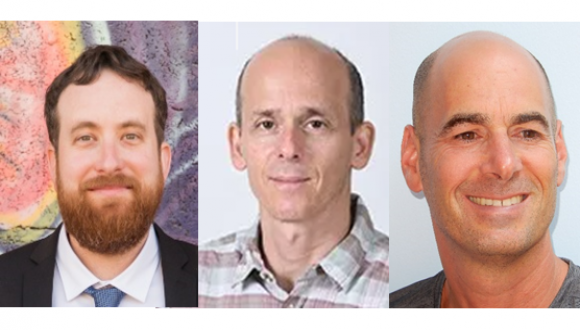January 2023: Loewenthal, Pupko & Mayrose: A new model offers an explanation for the huge variety of sizes of DNA
Gil Loewenthal, Edmond J. Safra PhD student fellow (Pupko lab, Life Sciences), developed models that explain the persistence of long neutral sequences in the genome by a phenomenon they term "border-induced selection".
Insertions and deletions of short DNA segments are frequent evolutionary events shaping the genomes of all organisms on earth. Numerous studies showed that deletions occur more often than insertions, which raises the question: why neutral sequences, sometimes referred to as “junk DNA”, are not eradicated from the genome?
Gil Loewenthal, Edmond J. Safra PhD student fellow (Pupko lab, Life Sciences), developed models that explain the persistence of long neutral sequences in the genome by a phenomenon they term "border-induced selection".
This phenomenon occurs when neutral sequences are flanked by functional regions, and thus deletions that can perturb these functional regions and be lethal to the organism are rejected by evolution. This research work helps elucidate the vast diversity in genome sizes observed in nature.
The research was done in collaboration with Prof. Itay Mayrose, Edmond J. Safra member (Life Sciences), and the following PhD students, Natan Nagar, Elya Wygoda (Pupko lab) and Lior Glick (Mayrose lab), all are Edmond J. Safra student fellows.
The study was published in the journal Open Biology and featured in the online newspaper YNET.





